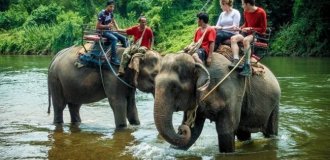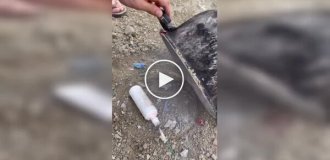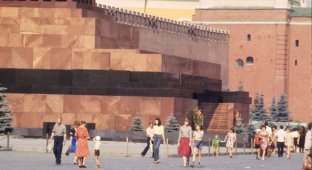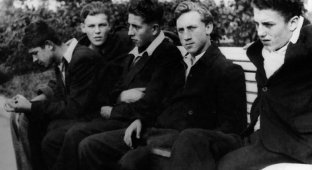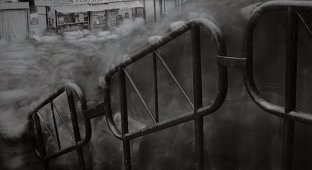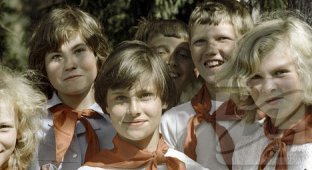Let's remember how we spent the summer in the pioneer camp.
Morning exercises, training, duty in the canteen, some constant competitions and events, delicious butter on a slice of equally delicious bread and a cut glass of tea.
In the evening there is a disco, a lot of friends, fun.
All this happened on summer days in June.

In the summer, almost all the pioneers of the Soviet Union went to pioneer camps. Usually, each more or less large enterprise had its own pioneer camp, where they sent the children of their employees. I think the parents were happy that they could take a break from their children in the summer. How much the ticket to the pioneer camp actually cost, I find it difficult to say; most of the cost of the trip was paid by the trade union. Therefore, parents paid relatively little money. This, of course, was a very strong aspect of the activities of Soviet trade unions. However, children didn’t care about such subtleties.
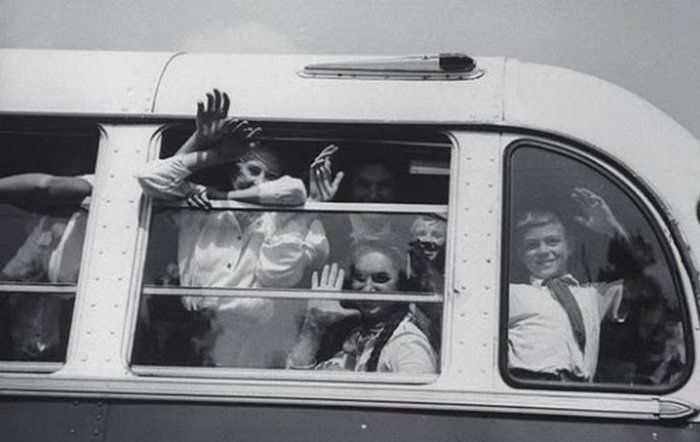
Typically, each pioneer camp operated in three shifts, each lasting approximately three weeks. The first shift began in early June. Before the start of the shift, the pioneer arrived with his parents at the so-called. a medical examination is something like an express medical examination. I arrived, of course, with a voucher printed on a colored clamshell, which indicated various parameters such as name, age, etc. Due to a number of circumstances, throughout my childhood I went to a new camp almost every year, so I am somewhat of an expert on pioneer camps. Why did I constantly change places of summer deployment? The fact is that the food plant where my mother worked did not have its own pioneer camp for a long time. But it constantly received applications from other enterprises for cooks in the camps. Other enterprises paid CIT including vouchers. That’s why I visited a lot of camps, so I have something to compare with.


Each shift began with departure. On the day of departure, the pioneer and his parents had to arrive at the predetermined place of departure. The pioneer had to be in full dress, i.e. in a white shirt with an ironed tie, trousers (or shorts for younger people), and a cap. The pioneer had a suitcase with things with him. A rectangular piece of paper with the pioneer's name and squad number was stuck on the side of the suitcase.

Yes, I forgot, all the pioneers in the pioneer camp were divided into groups according to age. The 1st detachment was the oldest. Then 2nd, 3rd, etc. Theoretically, the detachment should have been 10 in number of classes in schools. But this was not always observed.

If there were a lot of children, then there were more than 10 detachments; for example, I was in pioneer camps where there were 12 or more detachments. And vice versa, if there were few children, there could be 4-6 detachments (I’ve been in such ones too). The number of each detachment was approximately 40-50 people. Well, plus/minus, of course.

In addition, the pioneers leaving for the camp had with them a set of sweets: candies, cookies, gingerbread, etc. Fruit was not encouraged by the camp medical staff. By the way, the medical staff did not encourage much. And not because of barbaric cruelty, but because of not wanting an extra headache, well, these pioneers will eat apricots or cherries in the ass, and then there will be mass dysentery (in the film Welcome or unauthorized entry this is well shown). There was no chewing gum. who. Such a characteristic touch. And if anyone had a piece of chewing gum, it was a special treasure that was not included in the general bag of sweets. All sweets were placed in ordinary transparent plastic bags.

The pioneer who arrived at the assembly point and his parents registered with the pioneer leader of the corresponding detachment. After that, everyone loaded onto buses. Each squad had its own bus with the squad number on the windshield. After loading, everyone rushed to the windows and a heartbreaking scene of farewell to their parents began.

The column usually consisted of 5-10 buses, ahead of which was a traffic police car. These columns at the beginning of each summer month were a characteristic feature of Soviet cities.

The camp was usually one to two hours away from Moscow. In the middle of the way, the column made a stop so that the boys and girls could relieve their natural needs (boys to the left, girls to the right). As a rule, then someone got lost and everyone shouted in unison, calling for the missing person from the forest.

The missing person turned out to be some kind of lobot
cassocks who went out to pick mushrooms. During the movement, everyone usually got to know each other somehow. At the same time, many knew each other from previous years. In this sense, it was more difficult for me almost every year I got to know each other again.

Finally the column arrived at the camp and everyone tumbled out of the buses. Next, the counselors led their detachments into the corps assigned for each detachment. The buildings were different. Everything depended on the economic condition of the enterprise that owned the camp. I have been in camps with brick buildings that had a normal toilet and hot water. But most often the buildings were wooden and all amenities were located on the street.

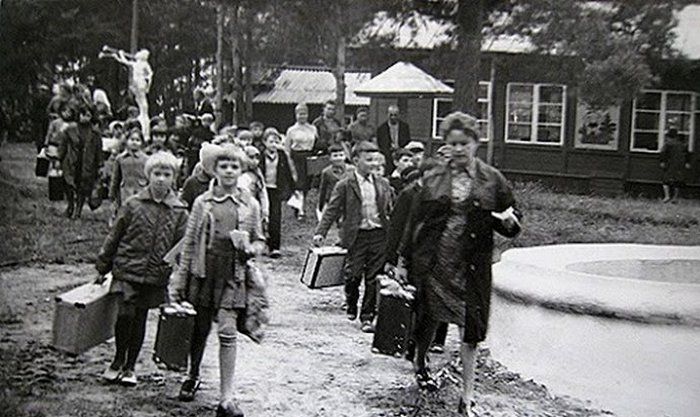
All suitcases were confiscated from the pioneers and hidden in a closet. Depending on the camp, the storage room was either in the detachment’s building or was the same for the entire camp. Usually the pantry was opened once a day for an hour, and then everyone could take everything they needed. They could put their things in the nightstand, which was located next to each bed. The beds were usually classic iron, with armored mesh and nickel-plated railings. However, sometimes there were more stylish ones with a wooden back. In addition to a set of bed linen, each person was given a waffle towel. Linen was changed once a week on bath day.

An almost military order was maintained in the wards; it was forbidden to lie or sit on them during the day. If you were guilty you could be punished. The beds had to be neatly made all day. Most often, a wildly inconvenient method of tucking was practiced, when it was necessary to fold the blanket in four, and wrap it in a sheet on the right and left, with pieces of a sheet on the sides, and in the middle a rectangle of a green or blue blanket. Refilling this twice a day was wildly annoying. Why twice? Because in the daily routine of the pioneer camp, in addition to sleeping at night, the so-called. quiet hour two hours of sleep after lunch. Everyone hated quiet time. And, of course, almost no one slept, and usually at this time they told jokes and made hooligans, for example, had pillow fights.
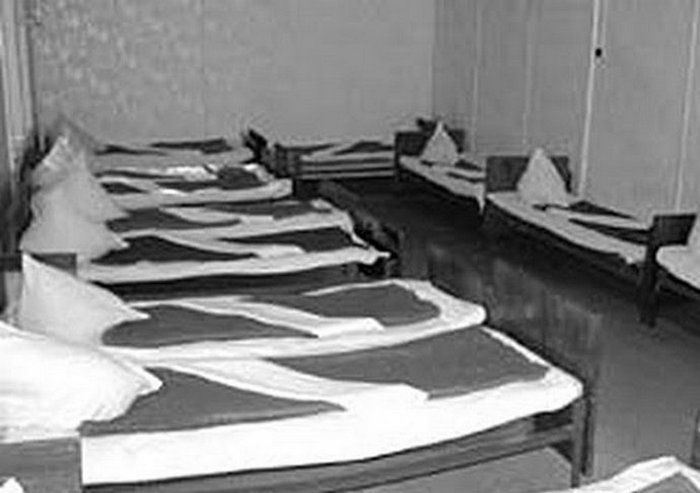
However, if a pioneer leader was caught violating the quiet hour, then punishment could follow. I was especially impressed by the punishments in the USSR KGB camp (in Berdyansk on the Sea of Azov), in which all the counselors were cadets of a special KGB school. For example, once the counselor took the quiet hour violators out into the street, ordered them to lie down and crawl about twenty meters on their bellies. Since it was the south and there was terrible heat, all the pioneers slept in only shorts, i.e. bare-chested. And I had to crawl on asphalt. These pioneers did not disturb the quiet hour anymore.

And I was once punished with progressive push-ups. It is performed as follows: a shoe is placed in the middle of the chamber; do one push-up; you get up; walk around the shoe in a circle, do two push-ups; you get up; go around two circles; do push-ups three times; you get up; you go around four circles and so on up to ten circles. Then you need to drive away. You can calculate for yourself how many push-ups you had to do. After completing the exercise, I fell on the bed and immediately fell asleep like the dead.
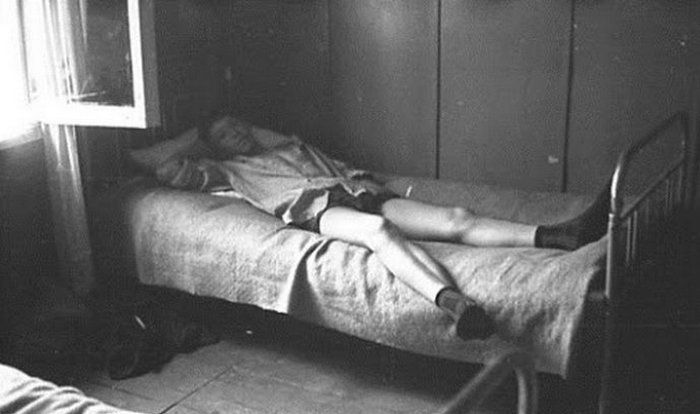
The daily routine was as follows. Exactly at 9 am a trumpet sound was heard. It was not the heavenly angels who called everyone to the Last Judgment, but rather a record with the signal “Rise” played on the forge that was played on the internal radio line. I only saw a real bugler in one camp; he was a man of about fifty who walked past the buildings and blew into a pipe with valves (I don’t know what it’s called). I didn’t rest in that camp, but came on an excursion with a group from another camp on meeting with director Kotyonochkin (who drew Well, wait a minute!). In another place, when the Novoarbatsky CP finally built its camp, two drummers played the rise and end. Which was somewhat unusual.

So, after the rise, everyone ran out to exercise. I don’t remember anyone mentioning exercises with a kind word. For some reason, the Soviet pioneers did not like to spread their legs shoulder-width apart, raise their arms to chest level and swing with these same arms. But nothing could be done. But some ran away. If pioneer leaders caught those who did not exercise, punishment followed.

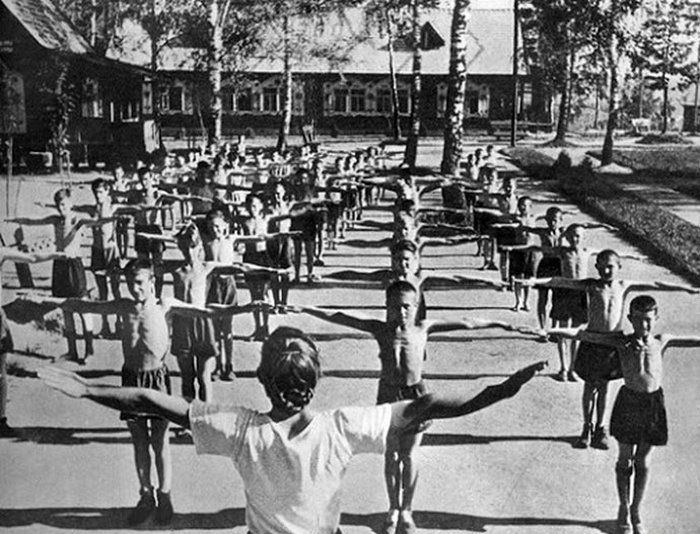
By the way, in the favorite book of my early childhood, Pirates of the Unknown Sea, it is very funny about how one day the camp director decided to stimulate the pioneers to clean up the territory. The director discovered a burnt match on the territory and arranged a competition to see who could find the most burnt matches. Win before
The one who collected the most matches was the one who was lying. The pioneers of one of the detachments showed pioneer ingenuity and ran to the nearest village, where they bought 100 boxes of matches for a ruble, quickly turning them into burnt ones and handing over six thousand burnt matches to the dumbfounded director of the camp.
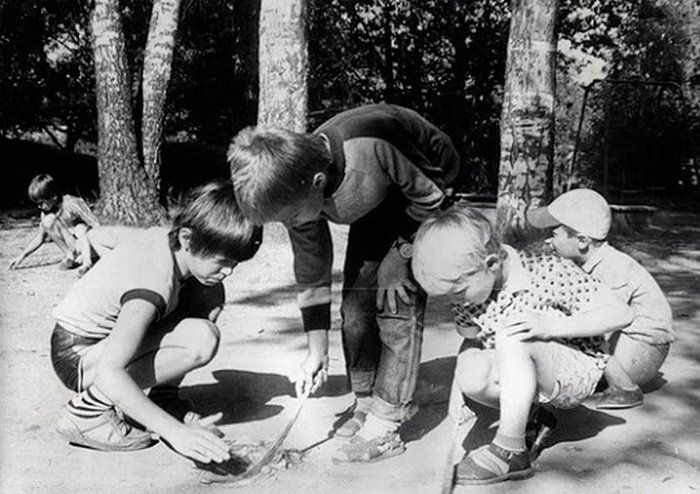
After cleaning the area, it was time for breakfast. By the way, something about breakfast, lunch and dinner in pioneer camps. In each camp that I visited, they fed differently. The best food was in the pioneer camp of the Novoarbatsky food plant. There they fed simply for slaughter; the daily allowance cost about 3 rubles and something. They even gave me red fish, red caviar, and once black caviar several times during the shift.

In other camps, the daily allowance ranged significantly lower, from one and a half to two rubles. Well, of course, we did without caviar and red fish. Again, the quality of food was influenced not only by the cost of the trip (and, accordingly, the cost of the daily food allowance), but also by the quality of the cooks.

As I already said, in the camps where I went, cooks from the Novoarbatsky command post worked, that is, cooks from restaurants and cafes. So, in general, the feeding was normal. But I heard stories about simply terrible food. Apparently, cooks for such camps were found in some canteens and station buffets. Well, the result. Maybe some of the readers will share their memories on this matter?

This is the nuance I would like to mention in this regard. The quality of the camp directly depended on the wealth of the enterprise that owned this camp. For example, in second place in terms of quality of those I visited, I put the Beryozka camp, which belonged to GIREDMET (State Institute of Rare Metals). There were brick (white brick) buildings with all the amenities inside, a huge, well-equipped area, etc.

The worst was the Novoarbatsky CP camp. You may ask: how is it that the food there was the best, but the camp itself was miserable? To this I will answer that here you need to know some of the nuances of Soviet life. If you take the USSR of the 70s, then no one would be surprised that the workers of restaurants and cafes that were part of the Novoarbatsky Food Combine lived somewhat better in terms of nutrition than, Let's say, workers of the Likhachev plant.

It is not surprising that the delicacies that restaurant and cafe workers had access to were in short supply in the USSR, which inevitably gave rise to demand on the black market and all the shadow capital movements associated with this. ZIL employees did not have access to this kind of shortage. But in terms of official profitability, ZIL was several times superior not only to KPN, but probably to the entire trust of canteens and restaurants in the city of Moscow. This is my free assumption, but it seems to me that it is close to the truth. Therefore, the ZIL pioneer camp itself was very rich in terms of fixed assets (buildings, playgrounds, etc.), but in terms of food, the situation was not so rosy. Well, Soviet specifics, in a word.

By the way, the most disgusting food I ever tried was in the USSR KGB pioneer camp in Berdyansk. But these were not the machinations of the bloody KGB, which mocked the pioneers (who, in fact, were mainly the children of employees). The thing is that in Berdyansk (which is on the Sea of Azov), the tap water tastes extremely vile. That’s why all food, especially soups and compotes, bear traces of this Berdyansk water. I remember when we were approaching Berdyansk (this was the only time I went to the pioneer camp by train), the fat, kind conductor exhorted you: Drink, boys, drink now , otherwise in Berdyansk the water is very filthy. And even the powerful Committee could not do anything about it. So everyone ate soups, which tasted as if a bar of soap was dissolved in the tank in which the soup was boiled every day. But... if I had two childhoods, I would, without hesitation, spend the second one in the USSR. SOVIET PIONEER CAMP IN PHOTOS There is hardly anyone over 30 years old who has not visited a pioneer camp in their childhood. Here is a selection of wonderful photographs about life in the camp in the summer of 1975.

Stop "Maly Civil". This is the train the guys came to the camp on. There was no platform. The older ones jumped off on their own, and the little ones were lifted in their arms.

The guys walked one and a half kilometers to the camp gate. Most of the guys loaded their things onto the car so they could travel lightly.

Arriving at the camp, the guys unpacked their suitcases and went to their building.
[im
g]https://cn13.nevsedoma.com.ua/photo/122/3/pioner-U.jpg[/img]
In the first 2 days, the entire camp passed through the first aid station, where a camper’s card was created and height, weight, and general condition were entered there.

At the end of the shift the same procedure took place. One of the indicators of good camp performance was the increase in the weight of campers.

Each detachment in front of its corps decorated a flowerbed-calendar of pine cones, stones and turf. The numbers and day of the week changed every day. It was very exciting.

From the first day the camp was preparing for opening. A school of buglers and drummers was created.

The boys studied every day.

School of buglers and drummers.

The squad goes to the Ceremonial Line.

The chairman of the squad council submits a report to the chairman of the squad council

The chairman of the squad council submits a report to the senior pioneer leader

Report to the camp commander

The first secretary of the Komsomol city committee presents a banner to the pioneer squad of the camp.

Every morning there was exercise in the camp. In babies near the body,
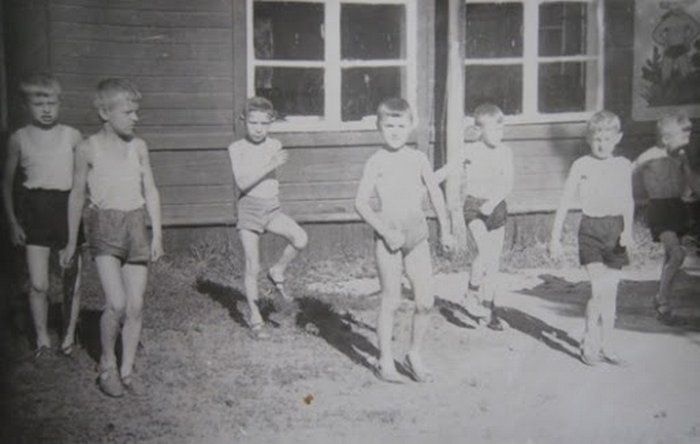
and for senior detachments - in the forest. Patriotic education in those days was a priority, especially in the year of the 30th anniversary of the Victory.

Song and formation show dedicated to the 30th anniversary of the Victory.

Head of the camp Skotnikov G.N. and secretary of the Komsomol committee of the plant N.I. Chernov. near the judging committee

The counselor talks about the exploits of the pioneer heroes.

War veteran at a meeting with camp pioneers

Rally on June 22 in the village of Devlizerovo near the obelisk

Elections to the Supreme Soviet of the RSFSR and local Soviets of Workers' Deputies on June 15, 1975. Visiting commission. The day at the camp was scheduled minute by minute. Every day there were always some events and competitions

Release of a camp wall newspaper. The editorial board is reviewing new photographs.

Camp library. Not all of them, of course, but some guys were here every day

Photo circle work

Young photographer

The camp paid a lot of attention to sports.


Volleyball competition between squads.

Pull-up on the horizontal bar


Fishing on Civil

Every shift the camp went on a hike.


Overcoming a water obstacle while hiking

Halt

Lunch at the rest stop

Relay "Fun Starts"



Every day doctors checked the water temperature in Civil

Bathing of junior units

The counselors made sure that the guys did not swim too far.


My favorite building in the camp is the dining room.
[img]https://cn13.nevsedoma.com.ua/photo/122/
3/pioneer10.jpg[/img]
Quiet hour

The camp had 3 territories and each had its own fountain. The fountain with Thumbelina was in territory 3.

Performance at a neighboring collective farm

Local collective farmers are grateful spectators


Amateur art competition between squads


Neptune's holiday. One of the most interesting holidays. It was not carried out on every shift, everything depended on the weather.


1st shift counselors and teachers

Counselors and teachers 2nd shift

Counselors and teachers 3 shifts


Farewell bonfire

Spectators and participants at the farewell bonfire


The suitcases are packed. Everyone is ready to leave

Goodbye childhood...





